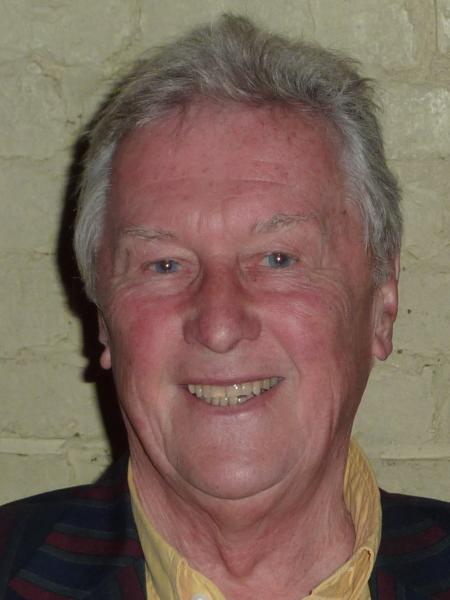Brian Hodgson

Image Credit: Chuck Foster (this image appears for illustrative purposes only and no attempt is made to supersede any copyright attributed to it)
Brian Hodgson
Born: June 1938 (age: 87)Brian Hodgson is a British television composer and sound technician.
Born in Liverpool in 1938, Hodgson joined the BBC Radiophonic Workshop in 1962 where he became the original sound effects creator for the science fiction programme Doctor Who. His main claims to fame are the sound of the TARDIS (which he created by running the back door key to his mother's house along a bass string of a gutted piano, then electronically treating the recording) and the famous voices of the Daleks, which he created by distorting the actors' voices and feeding them through a device called a ring modulator. He continued to produce effects for the programme until 1972 when he left the Workshop, leaving Dick Mills to produce effects for the remainder of the show's run.
Earlier, in 1966, with fellow workshop musician Delia Derbyshire and EMS founder Peter Zinovieff, he helped set up Unit Delta Plus, an organisation which they intended to use to create and promote electronic music. Based in a studio in Zinovieff's townhouse in Putney, they exhibited their music at a few experimental and electronic music festivals, including The Million Volt Light and Sound Rave at which The Beatles' "Carnival of Light" had its only public playing. After a troubled performance at the Royal College of Art, in 1967, the unit disbanded.
Also in the late sixties, Hodgson and Derbyshire, along with fellow musician David Vorhaus, set up the Kaleidophon studio in Camden Town. The studio produced electronic music for various London theatres and, in 1968, the three used it to produce their first album as the band White Noise. Although later albums were essentially solo Vorhaus albums, the debut, An Electric Storm featured collaborations with Hodgson and Derbyshire and is now considered an important and influential album in the development of electronic music.
During this period the trio also contributed, using pseudonyms, to the Standard Music Library. Many of these recordings, including compositions by Hodgson using the name "Nikki St George", were later used on the seventies ITVscience fiction rivals to Doctor Who; The Tomorrow People and Timeslip.
After leaving the Radiophonic Workshop, he set up the Electrophon studio with John Lewis, in Covent Garden, where he was later joined by Derbyshire. In 1973, he worked with the Doctor Who composer Dudley Simpson, under the name "Electrophon", on the album In A Covent Garden (sometimes credited to "The Unexploded Myth"). It featured Hodgson and Simpson's arrangements of several classical compositions for synthesisers and a 16 piece orchestra. Their versions of Tchaikovsky's None But the Weary Heart and Debussy's "La fille aux cheveux de lin" later appeared in the Doctor Who serial "The Robots of Death". The duo also released the albums Zygoat, in 1972, and Further Thoughts On the Classics, in 1974. In 1975, Hodgson collaborated with John Lewis, under the name "Wavemaker", on an album of experimental synthesiser work named Where Are We Captain ?... and later, in 1977, on New Atlantis. Besides records, Hodgson also spent his time at the studio writing scores for ballet and film including, with Derbyshire, the music for the 1973 horror film The Legend of Hell House.
In 1977, leaving the Electrophon studio in the hands of Lewis, he returned to the Radiophonic Workshop to replace Desmond Briscoe as its organiser. In 1983, he became the head of the department, remaining there until circumstances forced him to resign in 1995.
In 1983, he appeared at Doctor Who's 20th Anniversary celebrations at Longleat alongside many cast and crew from the series.
He was played by Joseph Railton in An Adventure In Space And Time.
Biography from the Wikipedia article, licensed under CC-BY-SA




 Home Region:
Home Region:
